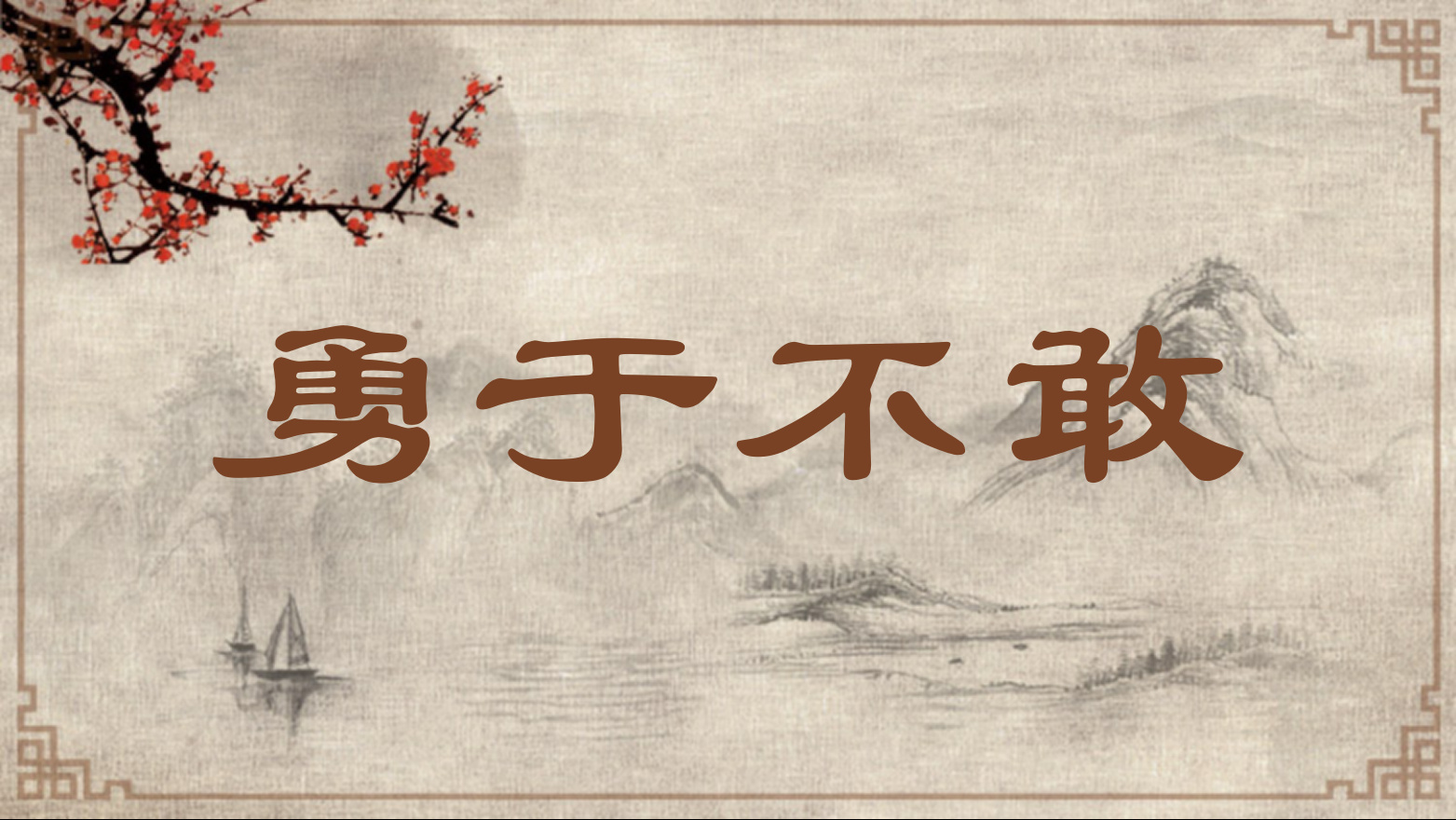勇于不敢 Courage Lies in Not Venturing into Action

勇于柔弱或退縮,勇敢地選擇不敢做某事。這是老子“柔弱”“無為”智慧的體現。依老子之見,一味逞強直進是危險的,要當進則進,當退則退。真正的勇,不僅表現為敢于做某事,更表現為不敢做某事;不僅要有所為,也要不妄為、有所不為。它提示人們,要有所敬畏,有所遵循;對違背規律、踐踏原則、破壞規矩的事情,要勇敢地退縮,堅決不為。小到為人處世,大到治國理政,皆同此理。
Courage lies in weakness or retreating, in bravely choosing not to venture into doing something. This exemplifies the wisdom in Laozi's concepts of "weakness" and "non-action." According to Laozi, it is dangerous to always push ahead stubbornly. One should advance when advancing is appropriate and retreat when retreating is appropriate. True courage is demonstrated not only in daring to do something, but even more so by not venturing into doing something. One must not only do, but also refrain from doing something rashly. This is a reminder that there are things that one must respect and obey. One should be brave enough to retreat and to refrain from doing something which violates rules, tramples on principles and disrupts norms. This applies to matters as minor as getting along with others and as big as governing a country.
引例 Citation:
◎勇于敢則殺,勇于不敢則活。(《老子·七十三章》)
勇于堅強則死,勇于柔弱則活。
Those with the courage to dare are killed; those with the courage to not dare survive. (Laozi)
推薦:教育部 國家語委
供稿:北京外國語大學 外語教學與研究出版社
責任編輯:錢耐安





